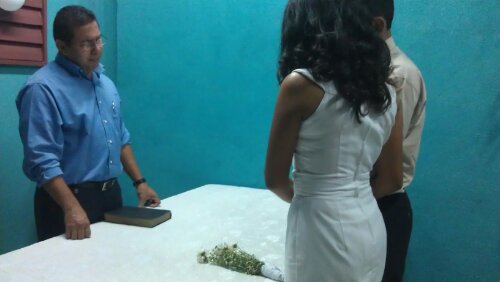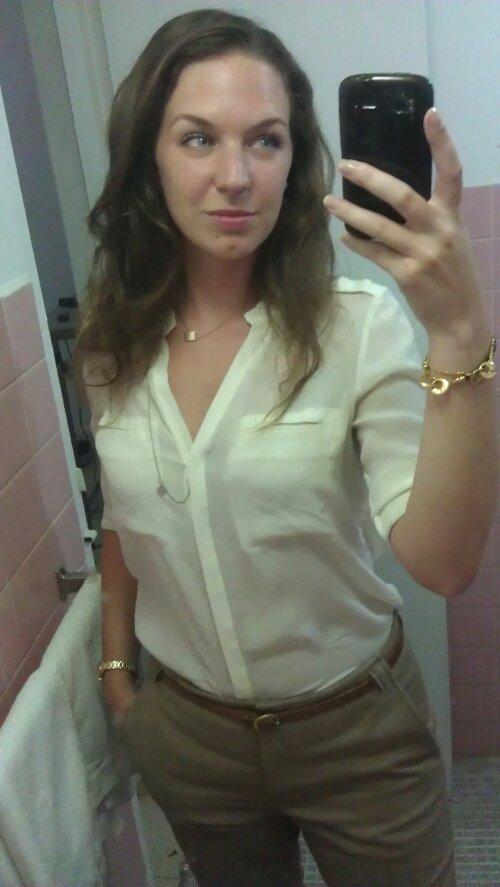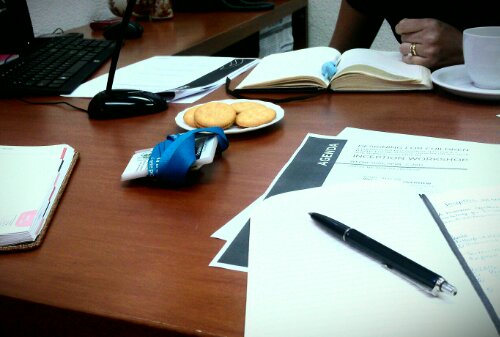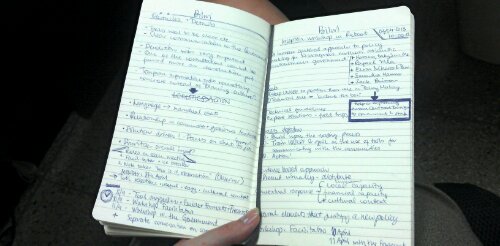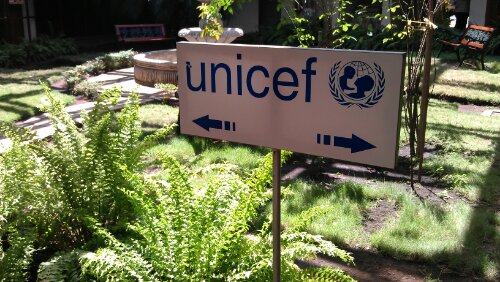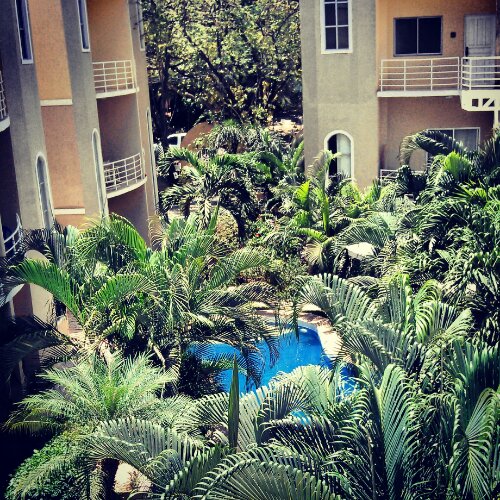Shopping mall and Elena, the gracious.
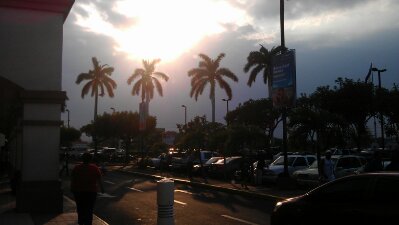






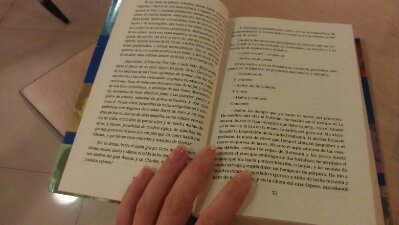
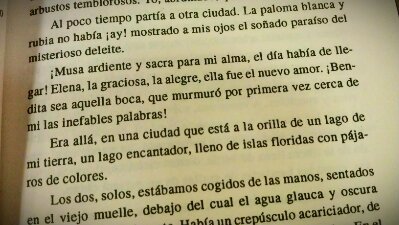
I took a taxi to the Metrocentro shopping mall after a very busy day at work today in an attempt to get a dose of consumerism and pretty fabrics. I wanted to see the prices of stuff, buy something for myself, and finally eat that lunch I had skipped during the day due to lack of time.
Shopping malls look almost the same all over the world. From what I’ve seen, it doesn’t matter much if you’re in Sweden or in Mozambique, and Nicaragua didn’t surprise me either. Heels were high, music was loud, and shop assistants were kind and helpful. And as in many developing countries, I found H&M clothes hanging in no-brand shops, tagged with completely outrageous prices.
That’s seriously a luxury one doesn’t really realize that we have in Europe. H&M, Zara, the entire Inditex group in general, Gina Tricot etc. Where one can get well designed pieces of clothes of durable quality to a very low price. You don’t get that abroad, the budget brands are so bad they look washed out and break before you even get to wear them, and they are still more expensive!
So, obviously, I didn’t buy shoes or a nice bluse as I had planned (The one I liked was 60USD), instead, I got myself a cinnamon roll and a book packed with short stories by the most famous Nicaraguan writers. Because I’m nerdy like that, because it gives me a historical context to go through with taxi drivers, and because it boosts my vocabulary.
Then I had a quite miserable dinner as I had to pick one of the evil fast food chains and got some kind of Chinese mix of who-knows-what. At least the book kept me company and proved to be very entertaining.
And now I just got back home, just in time for shower, music and ironing. In that order precisely, according to strict Nicaraguan rules – I’m not kidding, one day I will have to write about this. Later on we’re hopefully going dancing, and tomorrow I’m going to a wedding! A surprise wedding, kind of – you’ll see.
Ciao!
P.s – ‘Graciosa’ leans more to funny than ‘gracious’ as we interpret it. I just had to use that word game, those heels!
Getting a job with the United Nations

About twice a month, I receive an email from a stranger who dreams about a job with the UN. They usually find my blog through the article where I explained how to sign the P11 form electronically, which apparently was an information gap and which has gotten huge response.
The emails usually follow more or less the same structure:
Dear Caroline,
You don’t know me and I am sorry to bother you. I would like to thank and congratulate you on your important work and engagement for the human society/children/future of the world/the poor and vulnerable/etc. Myself, a highly educated, skilled and experienced Medical Doctor/Lawyer/Social Scientist/Humanitarian Worker/Human Rights advocate/etc. from a developing country in Africa/Asia/Latin America, have been applying for UN jobs for many years with no luck.
It is my goal and dream to be a part of the United Nations, and I would be very thankful if you please could give me some advice or let me know if you have any opportunities with your office or networks.
With best regards,
X
Always courteous, hopeful and a sometimes sad, these emails break my heart a little as I see the potential or at least good efforts of these individuals – but can’t do much about their situation.
First of all, I need to clear out that I am not the right person to ask for advice as I don’t have a permanent UN contract myself. I’m aspiring for one, of course, but until then I’m a consultant, meaning that I travel to where I am needed and work within the area where I best can contribute. Basically, if there is a gap of some sorts/a problem/a need for expertise within my area/etc. in an office, I get a temporary contract to do my thing for the time needed, which usually is a couple of months. This is great as it gives me a multifaceted experience, valuable insights into different conditions and countries, and I love the fact that it is exciting, flexible, fruitful and inspiring. However, being a consultant also implies a huge amount of uncertainty and the always relevant risk of falling between contracts, which is the gap where I’m forced to live off my savings, and where I am just as unemployed and job hunting as the individuals who send me those emails.
I’m aware of how hard it is to continue applying for jobs and write to people when you mostly don’t even get one of those automated “Dear Madam: Thanks, but no thanks.” emails. However, knowing how important it is to initiate personal contact, I always try to answer and contribute the best I can to the emails I receive, if only to inspire and give suggestions – which also is why I decided to write this post as it will save me a huge amount of time, reach out to more people and allow me to be more elaborate.
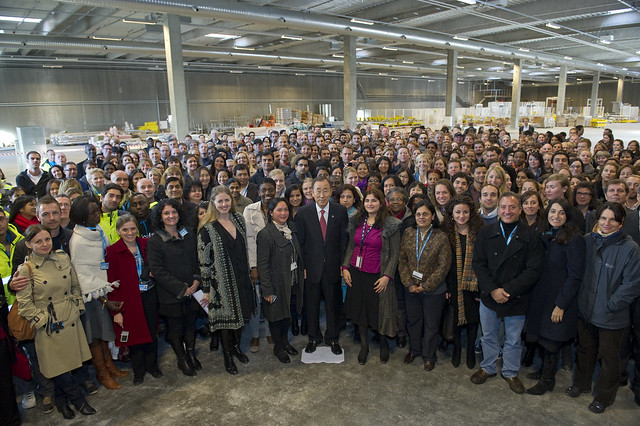
Having that said, I do acknowledge that I have managed to find my way into the system and that I have obtained a certain amount of understanding of the procedures, requirements and dynamics of the recruitment processes. Not saying that I have the answer to how to score a job with the UN, nor that I have any concrete solutions for the individuals who are emailing me, but that it does actually get easier once you get a foot in the door, which should be the main goal of any outside applicant, and that I believe that a combination of relevant skills, persistent and strategic efforts, good timing and a strong network is what one mainly needs.
Here is my take on a couple of suggestions. They are of course personal and based on my considerably short experience of reading applications, recruiting interns and of being recruited myself, so if somebody with better insights has anything to add, your contribution is more than welcome.
Skills:
You need a CV that is strong and relevant.
An academic degree is a must for most positions and internships. A bachelor is usually enough when applying for internships and administrative (G) positions, but a master within a relevant area is mostly necessary when applying for consultancies and international professional staff (P) positions. There are all sorts of areas within the UN system, so you can study something that you’re actually interested in, just make sure that it is an internationally recognized degree and not something completely irrelevant.
Languages are of very high importance and the requirements differ depending on the country you are applying to. Apart from the local language (not always), you will need to know English and/or French fluently, and then preferably at least one of the official UN languages. (Arabic, Chinese, Spanish, Russian.)
International work experience is very valuable. Engagement with non-profit organisations as well as international NGO’s shows that you have an interest in development and that you are driven by the cause and not necessarily by the image/status/money that you might believe a UN job can provide. If applying for positions in the field, previous experience shows that you have the psychological resilience to endure hardships. Specific skills and long experience in a certain area is of course of great value, and if you somehow have managed to combine it with activities that show your engagement for the values and focus of the agency you’re applying to – you should be a great asset.
Finally – none of this has any value if you can’t present it properly. Work on your CV and adjust it for each position you apply for, same goes for applications – I’ve read applications so generic that it was impossible to find a connection to the organization. Take your time, read through the vacancy announcement five more times to make sure that you covered all the requested requirements, run the spell checker again, and check that every single thing you mention is relevant for the position.



Strategy and Network:
Be proactive! I am convinced that contacting people and following up on applications is the way to go, especially when it comes to the most important part of job hunting – getting your foot in and spreading little seeds of interest. If you are asked for something, act immediately. If you can make up relevant questions to ask and initiate personal contact – call and show your interest. It doesn’t necessarily have to give you the job you have applied for, and usually doesn’t, but if you manage to introduce yourself properly, make a lasting impression, or in some other way convince the right person that you have skills that are of value, they might pass you on to another agency, keep you in mind for the next time, or even contact you when they hear of something relevant. True story.
Any person can choose to help you if they see that you have a skill that might be relevant for somebody else. Your network is your most valuable asset. A friend once told me: “Your network is not just about who you know, it’s about who you know knows.” Your main job is to let them know that you are on the market. Connecting people is the core of the development world as there is always a need for skilled professionals, there will usually still be a recruitment process, but it is often hard to find the right capacity and obviously safer to hire somebody based on a good recommendation.
As to getting your foot in. Internships are the easiest entry point. Unpaid and not always with the best conditions, they give you the opportunity to explore the system from the inside, do that valuable networking and learn as much as possible about the processes. Other interns and staff colleagues are great inspiration as they share your ambitions and have been in the same place as you once. Exchanging ideas is extremely valuable, and if you’re very lucky you might find a fantastic person with great experience who is willing to mentor you, inspire, and give their assurance to your future employers.
Timing:
Yes, you need a fair amount good timing which is a part you can’t really control. Or, more precisely, you need to be in the right place at the right time. In Mozambique last year, I was applying for a position at WFP and while visiting the office I had an informal chat with the communication officer in charge, mentioning my aspiration to go to the field to photograph and write an article for the Swedish UN Magazine, Världshorisont. A couple of days later I got a phone call from the UNICEF office, they were looking for somebody to document their projects in the field with stories and photography for a booklet. “I have been told by several people that you are a good candidate for this consultancy.” I was as surprised as I was happy – and sent my application an hour later.
To clarify, I don’t really believe in luck as such. It might look like a clear example in this case, but was in fact a result of many weeks of letting people know that I would be looking for a job and what kind of ideas I had. Of course, I was lucky that there was an opening at that exact moment, and that it was followed by another opening that was very relevant for my experience, but I am convinced that scoring a job depends on your ability to do a good job, get good recommendations, and persistently and optimistically strive for your goals, rather than luck and prayers.
Making sure to be at the right place at the right time – instead of just waiting, that is.

And to actually find the jobs and getting an idea of what kind of areas there is a need in at the moment, my favourite resource is that of an acquaintance of mine, Sebastian Rottmair, who runs the fantastic and very useful web portal UN Job List. On the website, Sebastian shares all internationally advertised UN vacancies and often also internships and temporary assignments. There is an option to define agency/duty station/grade, or even write keywords, for a weekly email alert containing the jobs that fit your search criteria. I’ve been subscribing to this since forever.
From my part, this is the best I can do in terms of giving some general advice. There is a detailed wiki on the topic that explains the whole process and gives some very good tips and entry points: “How to get a job with the United Nations”
Also, I am convinced that many of you have thoughts and ideas to add – please feel free to contribute and discuss in the comment section below.
And best of luck with your applications!

Update:
Dear all, thank you very much for your emails and positive feedback, I am happy that you enjoyed reading this post – unfortunately, as much as I would love to be able to help you out, find you a job, hire you, or connect you with a relevant colleague or UN Agency – I can’t do any of that. If you wish to ask a general question about this topic, feel free to do so under this post to share with other people who might be wondering the same, but please don’t email me your personal questions, curriculums and job applications, or add me on Facebook, as I have no authority to hire people. By writing this post, I wanted to inform about options but also illustrate that I didn’t have time to answer all emails and that I wasn’t the right person to ask. I recommend you to contact your local NGO’s and civil society organizations who work within many different areas and always appreciate and need support, or explore the option of a UNV or Online UN Volunteering.
You are of course still welcome to contact me about other matters. Just no more job applications, please! :)
20.05
Back on.
Costa Rica part 2: Pura Vida – Smoothies, Hippies and Surfboards
Suntanned, beautiful people of all ages walk shoeless in the little village of Tamarindo, carrying nothing but their surfboards. Dogs run around freely, wagging their tails and waiting for their masters to get back from the water, fresh, ice cold fruit smoothies are widely available, the beach bars play tropical lounge music, the temperature is absolutely perfect in the evenings, and the sunsets are red.
You don’t get far into Costa Rica before hearing the expression Pura Vida for the first time. Pura Vida translates to Pure Life, and is used both as a greeting and a synonym for “Great!” and “Life is beautiful!”. The waves that have earned the small beach towns on the pacific coast of Costa Rica their fame have created a tangible and slightly over-exploited surfer’s paradise vibe here. Blond, long haired men, American accents, beautiful girls on cruiser bikes, well defined abdominal muscles, horses, beers, perfect tans and all those dogs.
“Hey man, what’s up? Been to the water yet? How are the waves out there today?”
The standard phrase between my friend Frank and most of the people we meet while walking around the village makes me take for granted that everybody here surfs. People gather from different corners of the world, everybody seems to know each other, and Spanish is only the second choice of language. I ask about the code of conduct for surfing, about the different surfboards, about the dangers, about the relationship with the locals, and about the difficulties in learning the skill.
Frank explains patiently. It takes about ten years to learn how to surf properly. One can stand up on the board already on the first day, but then there’s a whole world of understanding how to read currents, weather, wind and waves. The time of the preferred “high tide” moves forward by exactly 50 minutes each day, coral reefs can be a deadly, there are sharks in Tamarindo. Surfing seems to be a sport that demands not only skill and cautiouness, but also a lot of patience. One can sometimes spend several hours in the water, only to catch a few waves.
“We line up in the water, and the first one’s on the sides get to catch the wave, depending on which side it comes from. If they miss it the next person tries to paddle up and take it, however, one should always respect the Ticos and give them priority. We don’t want the local community to feel that we came to their paradise to steal the waves. The waters belong to them and we are only guests.”

I met Frank in 2007, before my first backpacking trip to South America. He already had 10 years of experience travelling by himself at that point, and I basically needed somebody to tell me that I could travel around the continent on my own and that he had met other girls who travelled alone. We were introduced by a common friend, met for a cup of tea and travel stories, and I was reassured that I was going to be fine. Since then, we have been following each other’s adventures on Facebook and staying in touch sporadically about our whereabouts. This time we were too close by not to meet and catch up.
Frank is from my city in Sweden but decided many years ago that he prefers the lifestyle in Latin America and that he wants to focus on enjoying life, so he finally sold his apartment and moved to Tamarindo. Today, Frank basically walks around barefoot, drinks fruit juice, follows the stock market and surfs.
“Sometimes you are not sure about all of this.. it becomes a bit monotonous, especially when the weather goes bad for a couple of days and there is nothing to do in this little village. But very soon you sit down and relax after a couple of hours of surfing beautiful waves, you have a proper look at the sun as it sets, and then you realize the great value in this lifestyle.”
Craving for a couple of days without time, responsibilities or planning, I came back to Tamarindo to spend the remainder of my time in Costa Rica on the beach. I knew that hanging out with Frank would be simple and flowing, which is exactly what it proved to be. We ate in different places, walked all the way to Langosta beach where we met Frank’s friend Theresa, watched the sunset with our maracuya daiquiris and went out dancing all three of us. On Sunday, Frank and I left the house by noon, bought fruit salads and smoothies, and then spent the entire day on the beach until long after the stars had come out. We spoke about randomness, ate tuna sashimi, and finally went home to watch a movie.

















Monday morning I went out early for a stroll on my own, had a fantastic breakfast where I was surprised with avocado, pineapple and strawberries as a bonus, and spent my last half hour in Tamarindo enjoying the sun before heading back to Frank’s place, picking up my backpack, and hopping on the bus.




There was no time, no musts, no nada of the likes in Tamarindo. Only Pura Vida, smoothies, sun, beach and contemplation. And I kept feeling happy and grateful for allowing myself to aim for and appreciate these simple moments, and for once again having access to a hippie paradise just around the corner.
Kinder Bueno
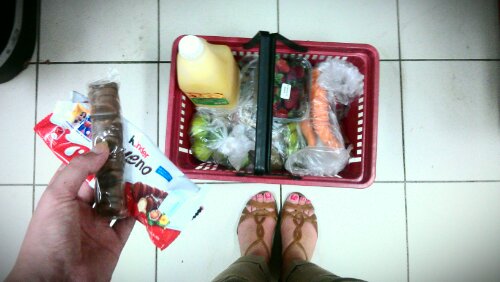
In Nicaragua it’s okay to start eating and drinking while shopping. You then pay for the empty bottle or paper along with the rest of your groceries. In my case, the rest is stuff to mix in the blender I realized I have in the kitchen, I’m happily craving fruit smoothies.
Update:
You know when you stand by the cashier waiting to pay your groceries, and the stuff that has been scanned continues on outside of the safe zone? I have often wondered if it happens a lot that the people busy packing their things accidently or purposely put something that theoretically already is yours into their own bag. I got a strange feeling today from the young 20-something couple in front of me when glancing at them in this exact moment, but dismissed it after double checking for my wallet and phone, and concentrated on paying. Now, this is just as hilarious as it is annoying; the kids stole my damn strawberries!
Costa Rica part 1: Two Ticas and a lot of Sun
Remember the story three years ago when I met a girl in Copenhagen airport who was lost and couldn’t find her flight, and who I then helped to find her luggage, buy a new ticket and continue her travels? Well, it happens to be so that this girl added me on Facebook, and it also happens to be so that she was a Tica. Costa Rican, that is. (Tica – girl, Tico – boy.)
I had completely forgotten about the details of this story when Katherine wrote to me last week. “Remember me? I’m the girl from the airport! You are welcome to come visit me here in Costa Rica.” So as I was in the midst of deciding on what to do for Easter holidays, and whether I should go to Costa Rica or not, as Den is on a trip to Cuba at the moment, Katherine popped up out of nowhere and convinced me that it was a great idea.
I boarded the Tica Bus from Managua at 6am on Thursday. The trip was simple, the border crossing went smooth, (Despite the fact that they covered the coolest stamp in my passport! haha) and despite being slightly cold (because people here just love their aircondition..) the 6 hours were a good deal for 58USD return plus the total of 20USD of visa and border costs. Katherine came to pick me up in Liberia, which is the first stop after the border and mainly a pass-through hub. I waited sitting on a sidewalk, watching big SUV’s passing by and American high-school students on some kind of trip ordering Burger King food and speaking the way teenagers do in movies. The wide streets, fast food restaurants and an old Dodge parked just next to me gave me the impression that this is what some parts of the US must look like. The contrast to Nicaragua was huge already, and I was only an hour from the border.
(hover photos for description)

Katherine and her friend Karen, who both call themselves Ka which soon became a bit confusing, picked me up in their car and we drove off towards the coast. First, we went to Playa de Coco where we had lemonade, hung out in the sun and watched a concert, and then to Tamarindo where my friend Frank lives and where we crashed at his place. Unfortunately, due to the “Ley Seca” which prohibits the sales of alcohol during the holy week, most bars and clubs were closed in Tamarindo, but we ate fantastic Israeli food and had a good sleep, allowing us to leave early the next morning with enough time to drive around and visit various beaches.






















In the afternoon, we went back to the two Ka‘s small home village, Nicoya. We went to Katherine’s grandmother’s place, sat by a pool, met with Kathy’s cousin and friends, acted girly, laughed, and went out for dinner and a concert. On Saturday morninig, we met with Kathy’s mother, had a lovely breakfast at their house, and then I jumped on a bus to Tamarindo, with a stop over at Santa Cruz little bus station.





